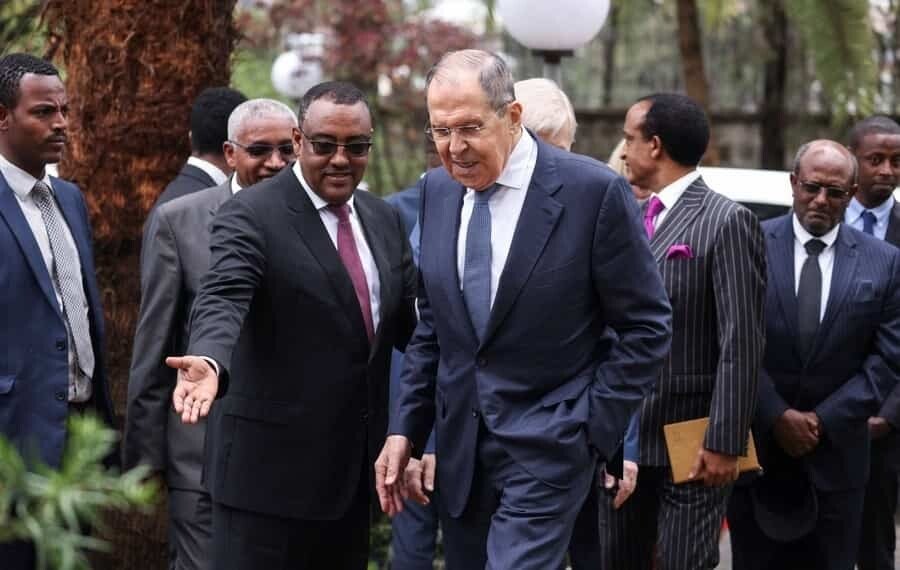
by Michelle Gavin

Russian Foreign Minister Sergey Lavrov and his Ethiopian counterpart Demeke Mekonnen arrive at Russian Embassy during Lavrov's visit to to Addis Ababa, Ethiopia, July 27, 2022. REUTERS/Tiksa Negeri
Russian Foreign Minister Sergey Lavrov’s four-country Africa swing attracted a great deal of attention in Western media outlets, which framed his trip as a diplomatic campaign intended to prove that the West’s efforts to isolate Russia have obvious limits. In Egypt, Ethiopia, Uganda, and the Republic of Congo, Lavrov sought to deflect responsibility for the serious food and fuel disruptions resulting from Russia’s invasion of Ukraine, and position Moscow as a champion of state sovereignty and independence. It’s an audacious claim from a country currently engaged in a campaign to annex part of its neighbor. Meanwhile, the world waits for Russia to lift its blockade on Ukrainian grain and allow ships to pass through the Black Sea.
Lavrov’s tour came right on the heels of President Biden’s announcement that the long-planned U.S.-Africa Leaders Summit will take place this December in Washington DC, tackling a broad agenda of strengthening economic ties, promoting democracy, advancing peace and security, and addressing global health, climate, and food security threats. Senior U.S. officials are also making the rounds in Africa; USAID Administrator Samantha Power was in Kenya and Somalia last week, focusing on the dire drought and hunger crisis in the Horn, and U.S. Ambassador to the United Nations Linda Thomas-Greenfield will travel to Ghana and Uganda within days. Rumors abound that Secretary Blinken will travel to the continent in the weeks ahead as well. The Biden administration is clearly taking pains to demonstrate a reinvigorated enthusiasm for U.S.-Africa relations.
That energy and high-level engagement is unequivocally positive, but there are two pitfalls officials should take care to avoid. First, to make meaningful progress in advancing shared interests with African states, it’s important that U.S. officials are sincere when they deny that U.S. attention to African partners is primarily about boxing out Russia or China. Headlines like the Washington Post’s that reference a “New Cold War” serve as a warning to the United States. One can acknowledge that major powers are all seeking influence in Africa without framing the continent as a venue for proxy competition, rather than a force for shaping the global future in its own right. There will be no resilient rules-based international order in the future that does not include African leadership and account for African interests. Policies driven entirely by major power rivalries can drown out African agendas, and muddle U.S. strategic goals over time.
Africa in Transition
Michelle Gavin and other experts track political and security developments across sub-Saharan Africa. Most weekdays.
https://zehabesha.com/as-russia-and-the-united-states-seek-influence-in-africa-strategic-pitfalls-loom/

No comments:
Post a Comment